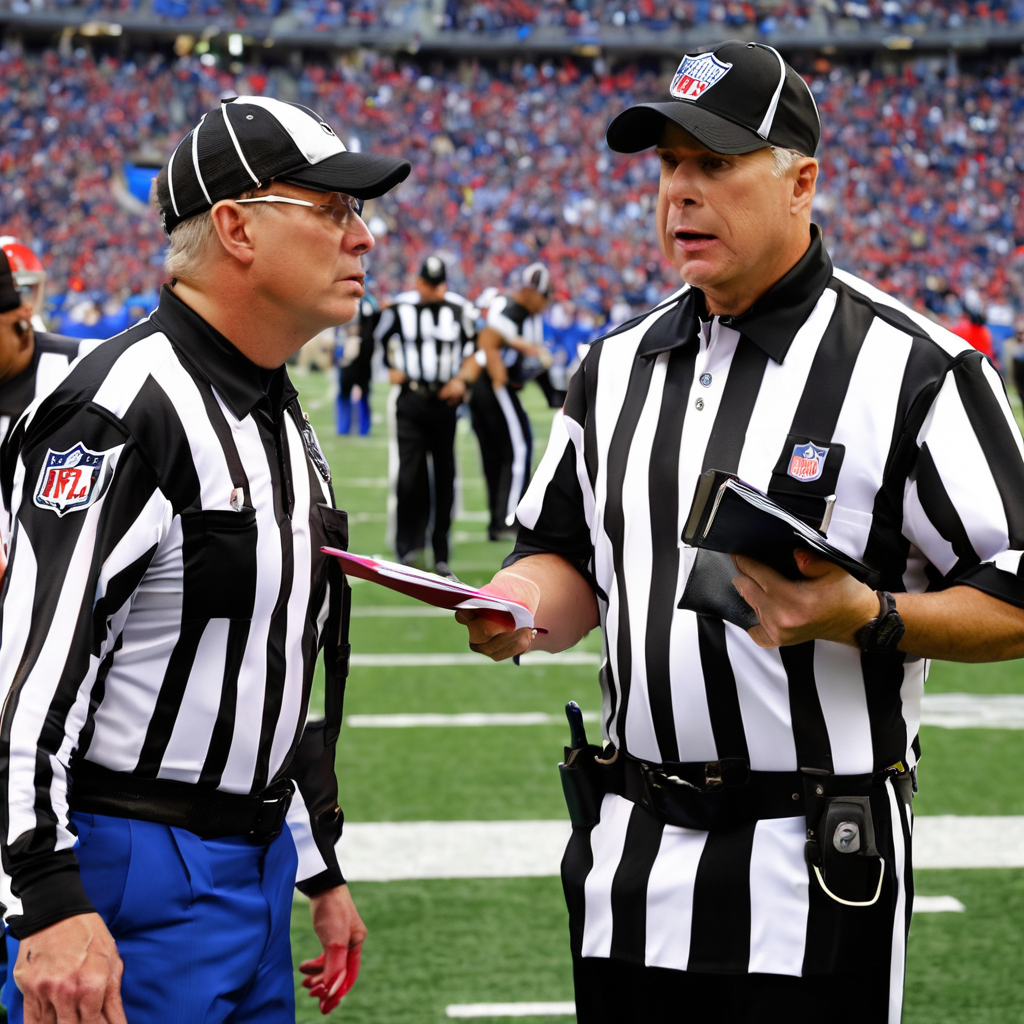NFL Officiating Bias: Do Winning Teams Get More Calls? Analyzing the Perception of Referee Favoritism
NFL Officiating Bias: Do Winning Teams Get More Calls? Analyzing the Perception of Referee Favoritism
The age-old question in sports: do referees unconsciously favor winning teams? After the Jets’ recent loss, comments from Sauce Gardner alleging officiating bias reignited this debate. Gardner’s sentiment, echoing a common refrain among losing teams, suggests a perception that penalties are disproportionately called against teams that are struggling.
This isn’t a new phenomenon. Coaches, players, and fans across all sports frequently voice suspicions of biased officiating. But is there any truth to it, or is it merely a manifestation of frustration after a tough loss?
The Psychology of Perception
It’s crucial to acknowledge the psychological aspects at play. Losing teams are naturally more sensitive to perceived injustices. Every penalty feels magnified, fueling the belief that the game is rigged against them. Furthermore, confirmation bias can reinforce this feeling. Fans and players are more likely to remember instances that support their pre-existing belief in unfair officiating, while dismissing calls that benefit their team.
Data-Driven Analysis: Is There Real Bias?
While anecdotal evidence abounds, rigorous statistical analysis is necessary to determine if officiating bias truly exists. Studies attempting to quantify this have yielded mixed results. Some analyses suggest a slight correlation between a team’s winning percentage and the number of penalties called against them. However, correlation does not equal causation. Other factors, such as aggressive playing styles often adopted by losing teams in an attempt to catch up, could contribute to a higher penalty count.
The difficulty lies in isolating officiating bias from other influencing variables. For example, teams with weak offensive lines might face more holding calls. Teams with struggling defenses might commit more pass interference penalties. These factors are directly related to team performance, but they aren’t necessarily evidence of referee bias.
The Role of Reputation and Crowd Influence
Another potential factor is the reputation of specific players or teams. Established stars might receive the benefit of the doubt on close calls, while lesser-known players might be penalized more readily. Home-field advantage, including the influence of a roaring crowd, can also subtly impact officiating decisions. Referees are human, and it’s unrealistic to expect them to be completely immune to these external pressures.
The Need for Transparency and Accountability
Ultimately, the perception of officiating bias can erode trust in the integrity of the game. The NFL and other leagues should prioritize transparency by openly discussing officiating standards and providing explanations for controversial calls. Increased accountability for referees is also crucial. Regular performance evaluations and disciplinary action for egregious errors can help ensure fairness and maintain the confidence of players and fans alike. While eliminating all subjective calls is impossible, striving for greater consistency and transparency is essential to minimizing the perception of bias and upholding the integrity of the sport.

